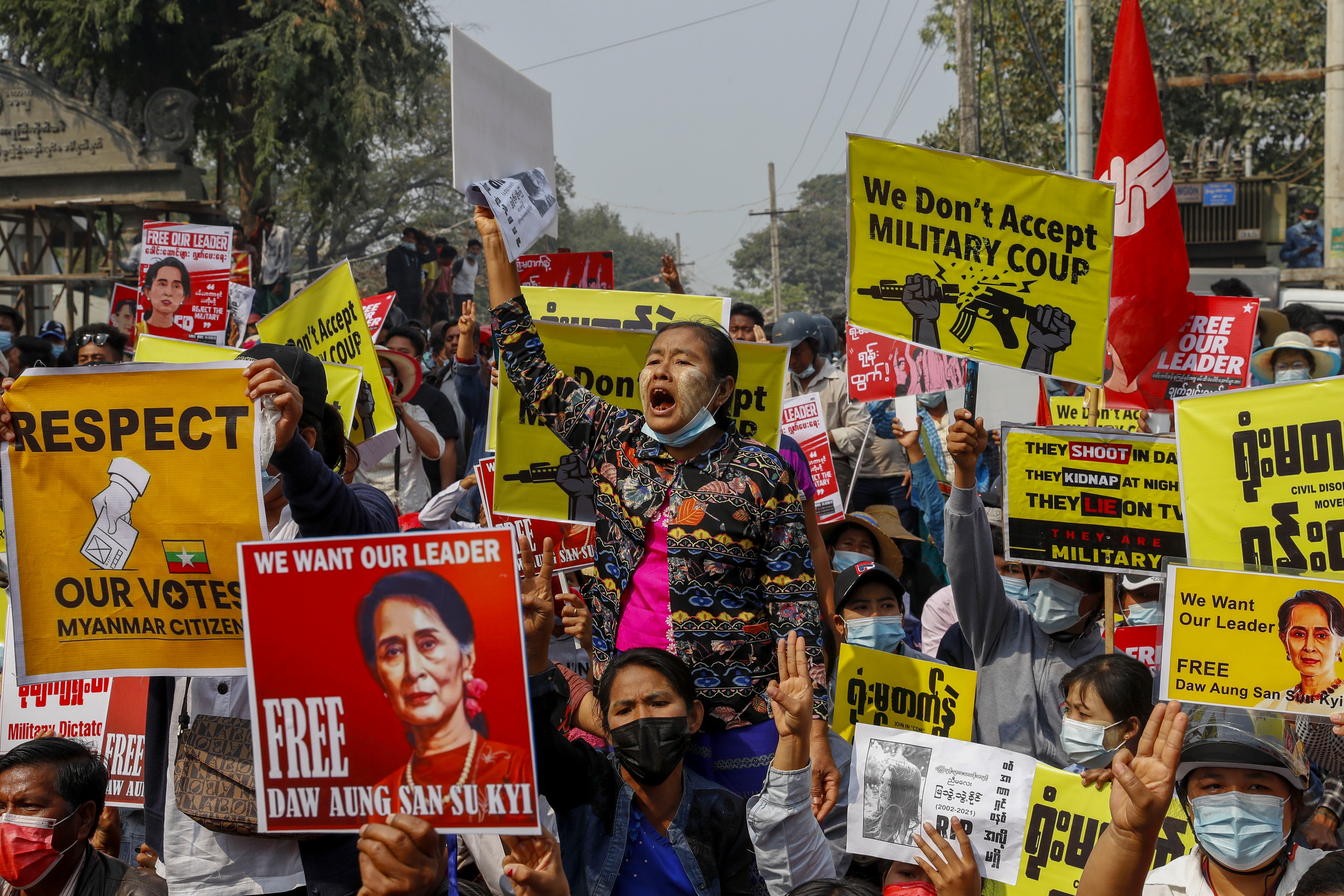HRW: Democracy must step up as autocrats face turning point
A top rights activist feels populist autocrats could be facing a turning point as people learn that stirring words don’t always translate into action, but he says democratic politicians will have to step up with “visionary leadership” to keep autocrats from getting a second chance

Your support helps us to tell the story
From reproductive rights to climate change to Big Tech, The Independent is on the ground when the story is developing. Whether it's investigating the financials of Elon Musk's pro-Trump PAC or producing our latest documentary, 'The A Word', which shines a light on the American women fighting for reproductive rights, we know how important it is to parse out the facts from the messaging.
At such a critical moment in US history, we need reporters on the ground. Your donation allows us to keep sending journalists to speak to both sides of the story.
The Independent is trusted by Americans across the entire political spectrum. And unlike many other quality news outlets, we choose not to lock Americans out of our reporting and analysis with paywalls. We believe quality journalism should be available to everyone, paid for by those who can afford it.
Your support makes all the difference.A top rights activist feels populist autocrats could be facing a turning point as people learn that stirring words don't always translate into action, but he says democratic politicians will have to step up with “visionary leadership” to keep autocrats from getting a second chance.
Kenneth Roth executive director of Human Rights Watch, wants to counter what he sees as “conventional wisdom” holding that autocrats are in the ascendancy. He commented as the New York-based advocacy group on Thursday released its annual report chronicling the human rights situations in roughly 100 countries where it works – from Afghanistan to Zimbabwe.
In a video interview, Roth highlighted three places that top his long list of concerns for the coming year: Ethiopia's Tigray region, Myanmar and Sudan. He also pointed to how leaders in countries like Russia, Belarus and Nicaragua last year resorted to sham or manipulated “zombie elections” that had no credibility, saying they were exposed in acts "of desperation and weakness.”
In China, President Xi Jinping and his supporters claim that he is loved by the people, but “he wouldn’t dare have an election,” Roth said.
He said Myanmar's junta is trying to retain power by force and “massive” public resistance but defections from the military have emerged even as a crackdown has killed some 1,400 demonstrators. U.N. experts have warned that the country could be sliding into civil war.
“This could get very ugly because the junta has completely lost the respect of the people,” Roth said.
While fighting has diminished in Ethiopia, he noted that hundreds of thousands of people in Tigray remain on “the brink of starvation” and Prime Minister Abiy Ahmed has shown no sign of easing a blockade on the region where more than a year-long war has created a devastating humanitarian crisis.
Roth said that at the turn of the century, “there was this sense that ‘Oh, democracy has won.'" But many people in democratic countries soon felt left behind and grew resentful, he said, which "provided fertile ground for populist autocratic leaders to gain power, promising the moon, saying, ’We’re going to serve you better.'”
“In the end, they didn’t," Roth said. “I think what we’re seeing now is a turning point because people recognize that that rhetoric may be ‘nice’ — you know, they may be demonizing unpopular minorities, or women’s rights, or LGBT rights — but they’re not delivering anything.”
But autocrats stumbling is “not going to be enough,” he said. "Democracy is going to have to reinvigorate itself and really rise to the occasion in a way that it hasn’t so far.”
He cautioned that democratic leaders are often “too mired in partisan battles and short-term preoccupations" to address issues like climate change, the COVID-19 pandemic, poverty, racial injustice and the challenges presented by technology, which all affect people's lives.
Roth offered criticism for Western governments, saying Germany under former Chancellor Angela Merkel promoted an investment deal with China even as Berlin led condemnation of the Chinese government's “crimes against humanity” in the western region of Xinjiang. China says it is providing vocational and other training to Muslim Uyghurs in the region in what critics call detention centers.
The government of French President Emmanuel Macron of France “was blind to the abysmal situation in Egypt," Roth said. And he faulted President Joe Biden's administration for promising a U.S. foreign policy led by human rights but then continuing “to sell arms to Egypt, Saudi Arabia, the United Arab Emirates, and Israel despite their persistent repression.”
“There’s a need for visionary leadership to have the magnitude required to address the problems of today," Roth said. “There’s a need to rise to the occasion, and we admit today’s democratic leaders are not doing that.”
He sidestepped a question on who those visionary world leaders might be, but warned that if democratic leaders “continue to fail, that’s going to breed the kind of despair and disillusionment that will give the autocrats a second chance.”
___
Associated Press writer Lederer at United Nations in New York contributed to this report.